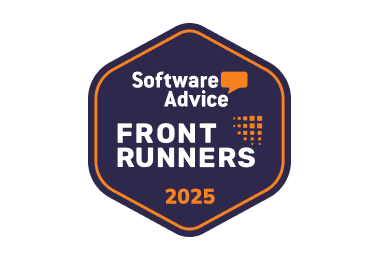The #1 free knowledge base software
Discover how easy it is to create professional knowledge bases.
- ✓ No setup fee
- ✓ Customer service 24/7
Used by

Looking for a free knowledge base software?
A customizable free knowledge base makes your agents’ job easier and encourages your customers to help each other.
LiveAgent is the most reviewed and #1 rated help desk software for SMB. Stay close to your customers and help them faster with LiveAgent.
Create FREE account
The FREE account is free forever, but it comes with limited features.

What is free knowledge base software?
A knowledge base is an online self-service database that can be used by anyone looking for information about your company or products. This software enables you to store, share, and manage important information and data in a single place, where it is easily accessible. At their core, knowledge base tools can save you valuable resources such as time and money as they enable you to provide support to your customers even when your agents are not online.
Why free knowledge base software?
Create a place where your agents can share their knowledge and where your customers can solve their problems.
Happier customers
Create in-depth knowledge base articles to provide quick assistance to your customers.
24/7 support
By building your knowledge base, you ensure your customers have access to important information 24/7/365.
Decreased ticket load
Empower your customers to find information independently and enable your agents to focus on more pressing issues.
4 steps to create a free knowledge base
Create a place where your agents can share their knowledge and where your customers can solve their problems.
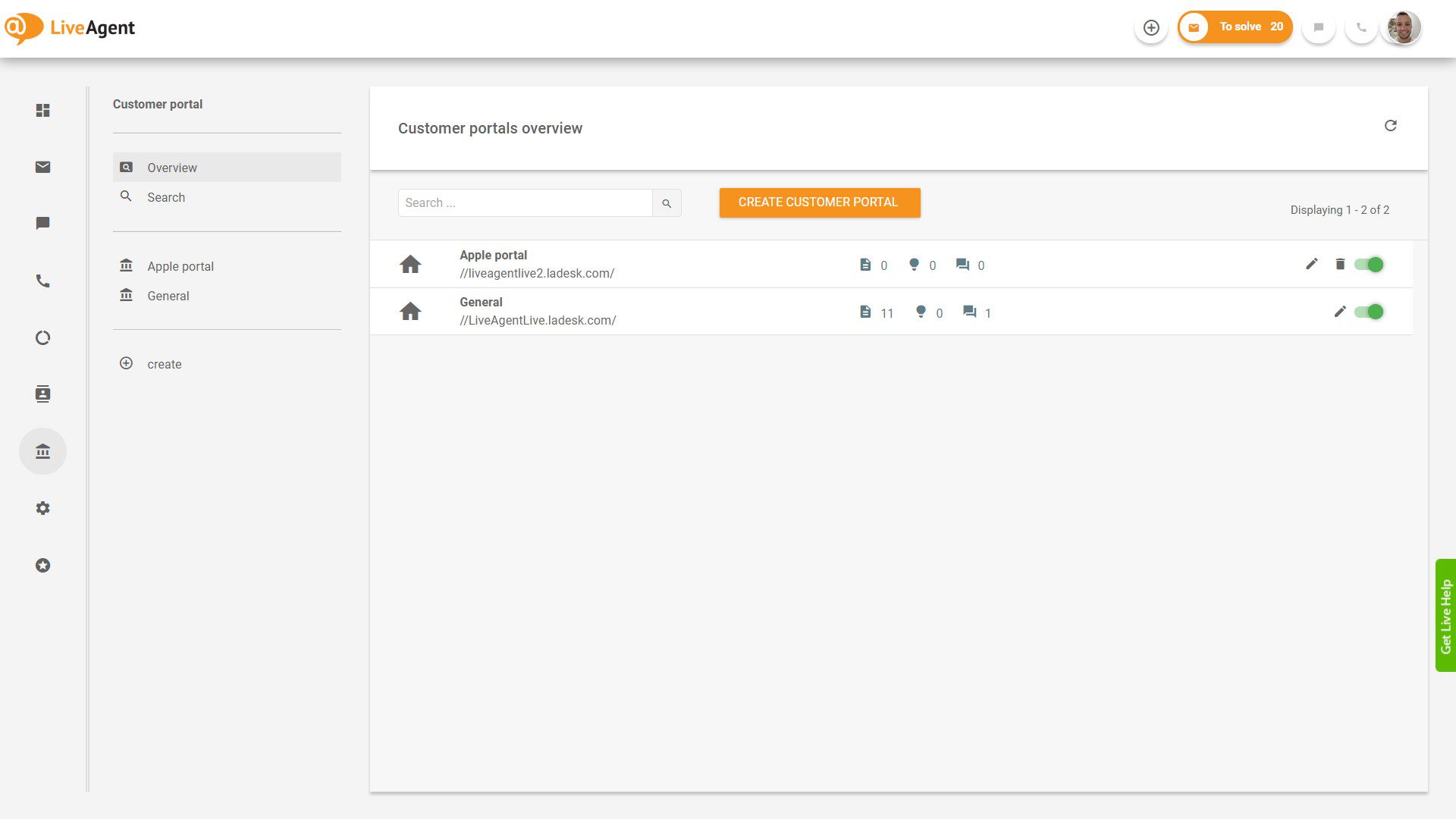
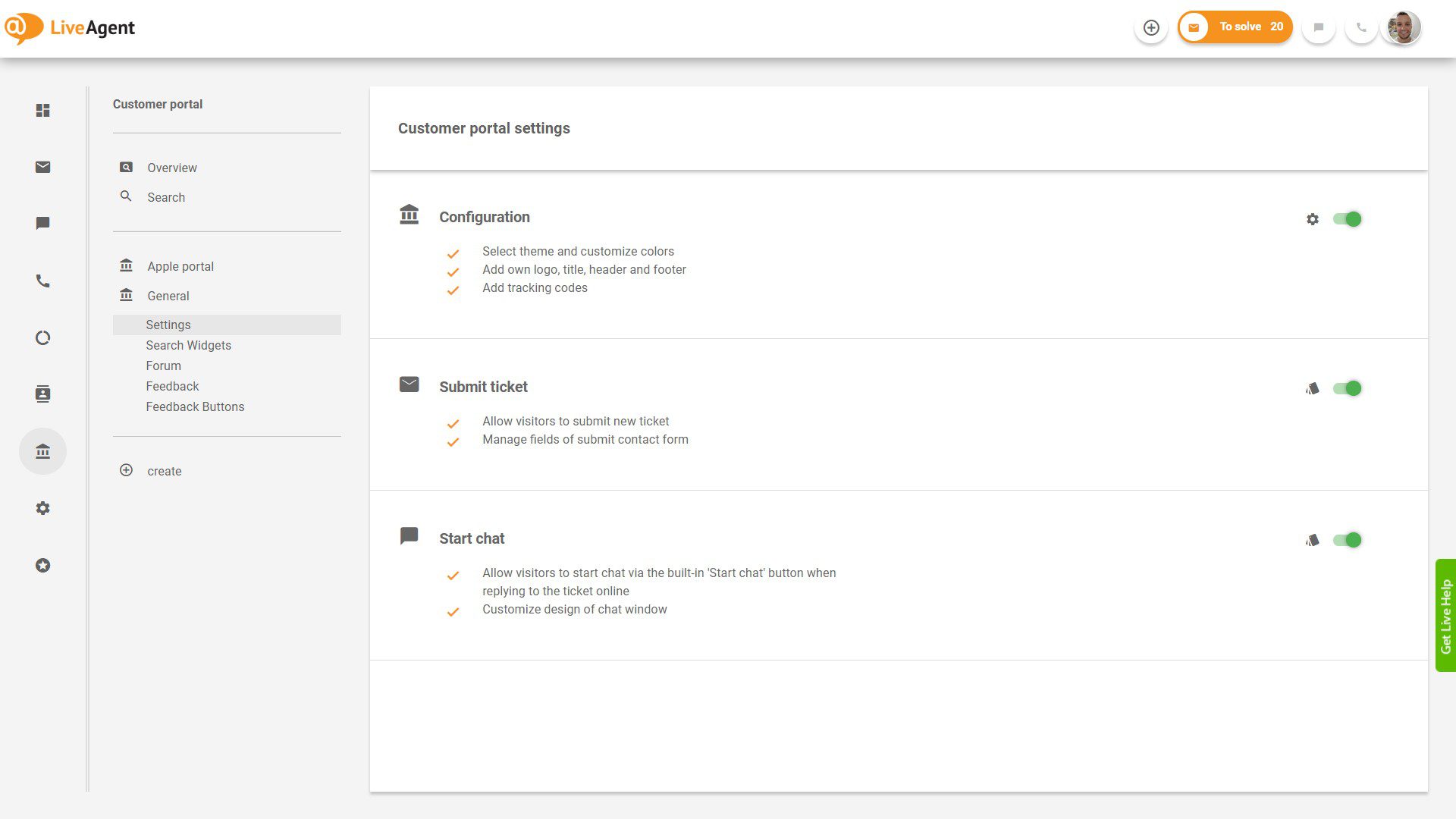
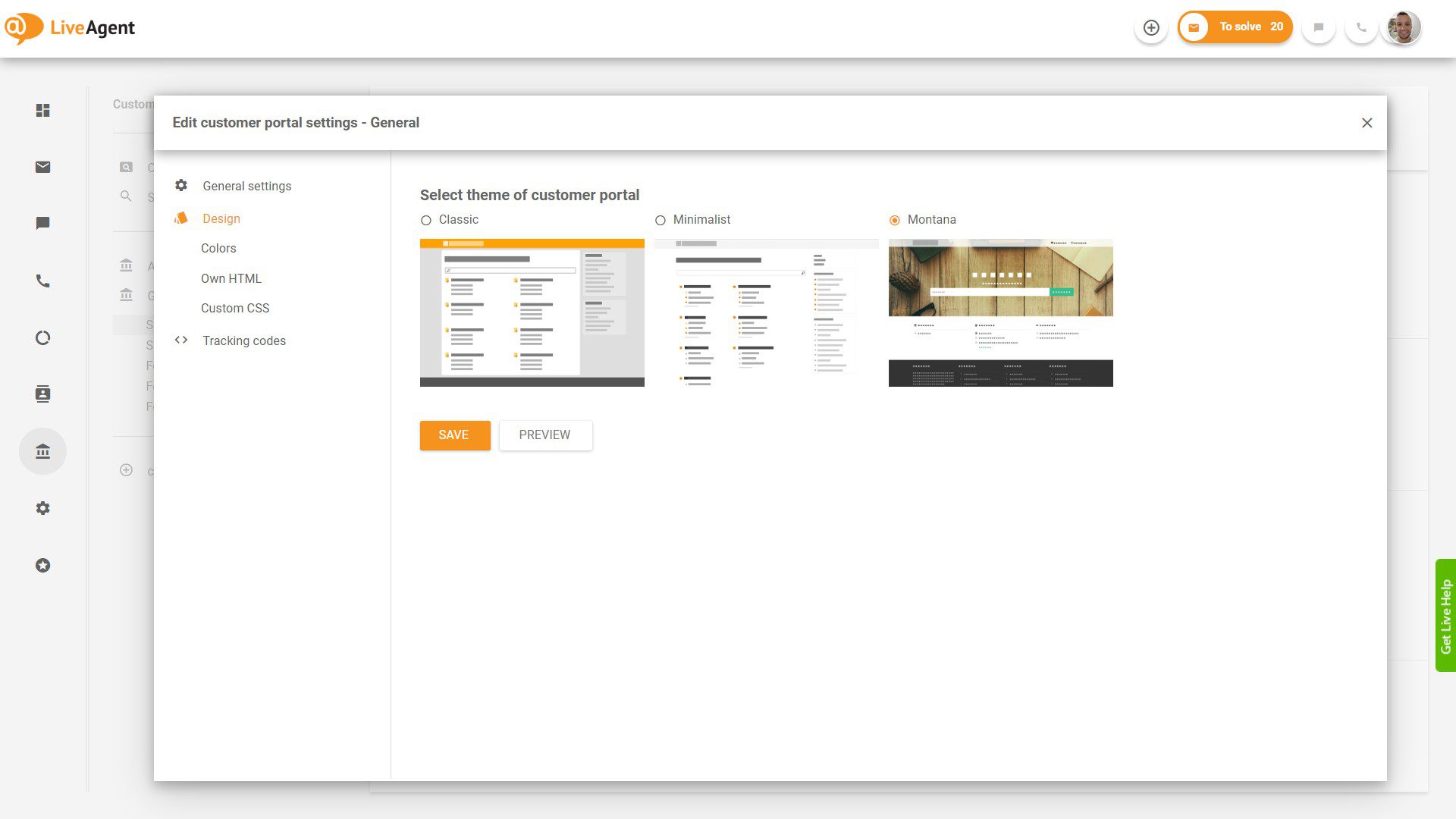
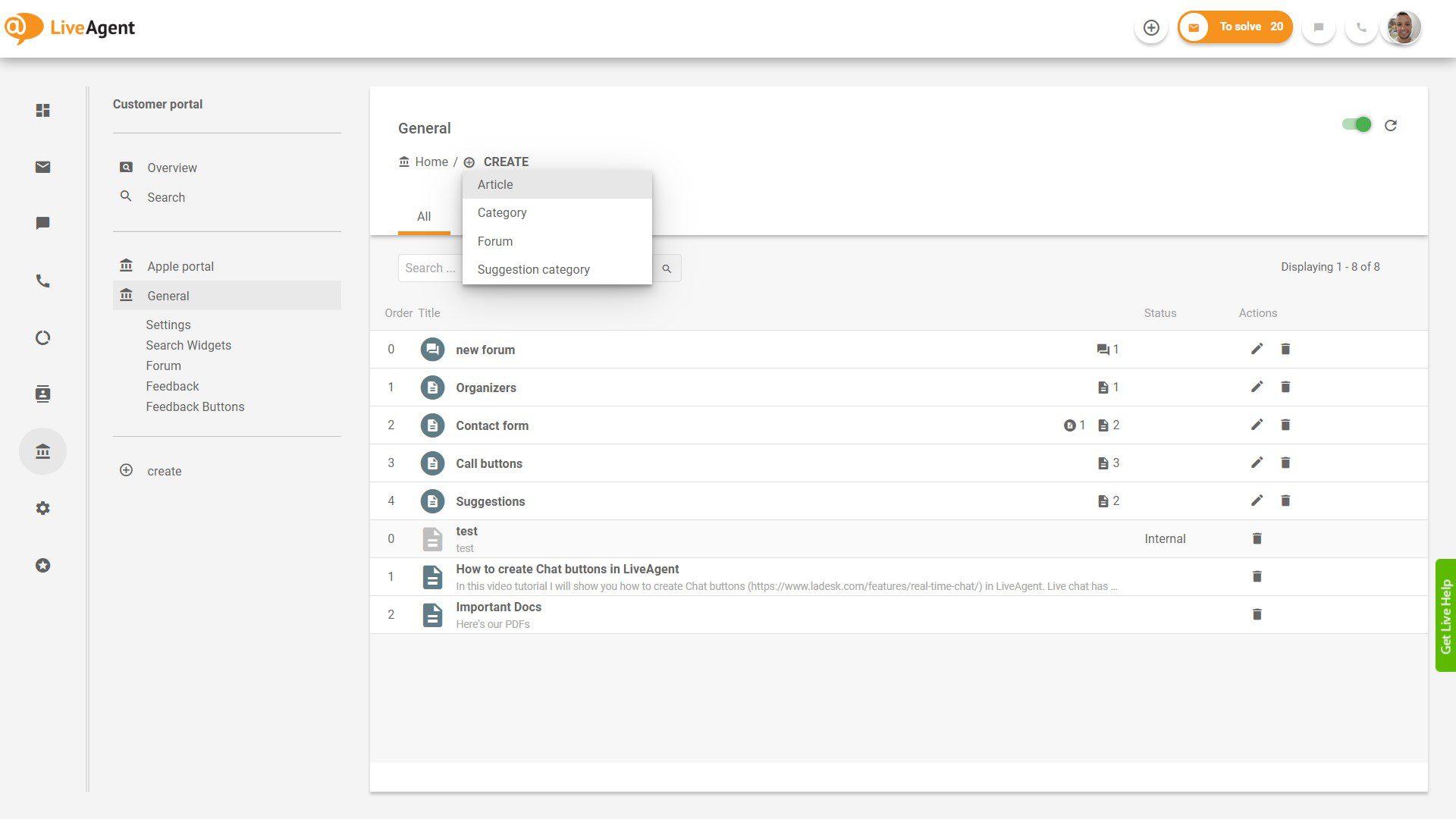
Choose from 3 predefined designs
LiveAgent’s knowledge base tool allows you to choose from predefined knowledge base designs. Even though we do not offer a custom theme, the designs are adjustable in terms of color, and can be customized with your HTML header/footer. After choosing the design, you can start filling your knowledge base with relevant content for both customers and your entire team.
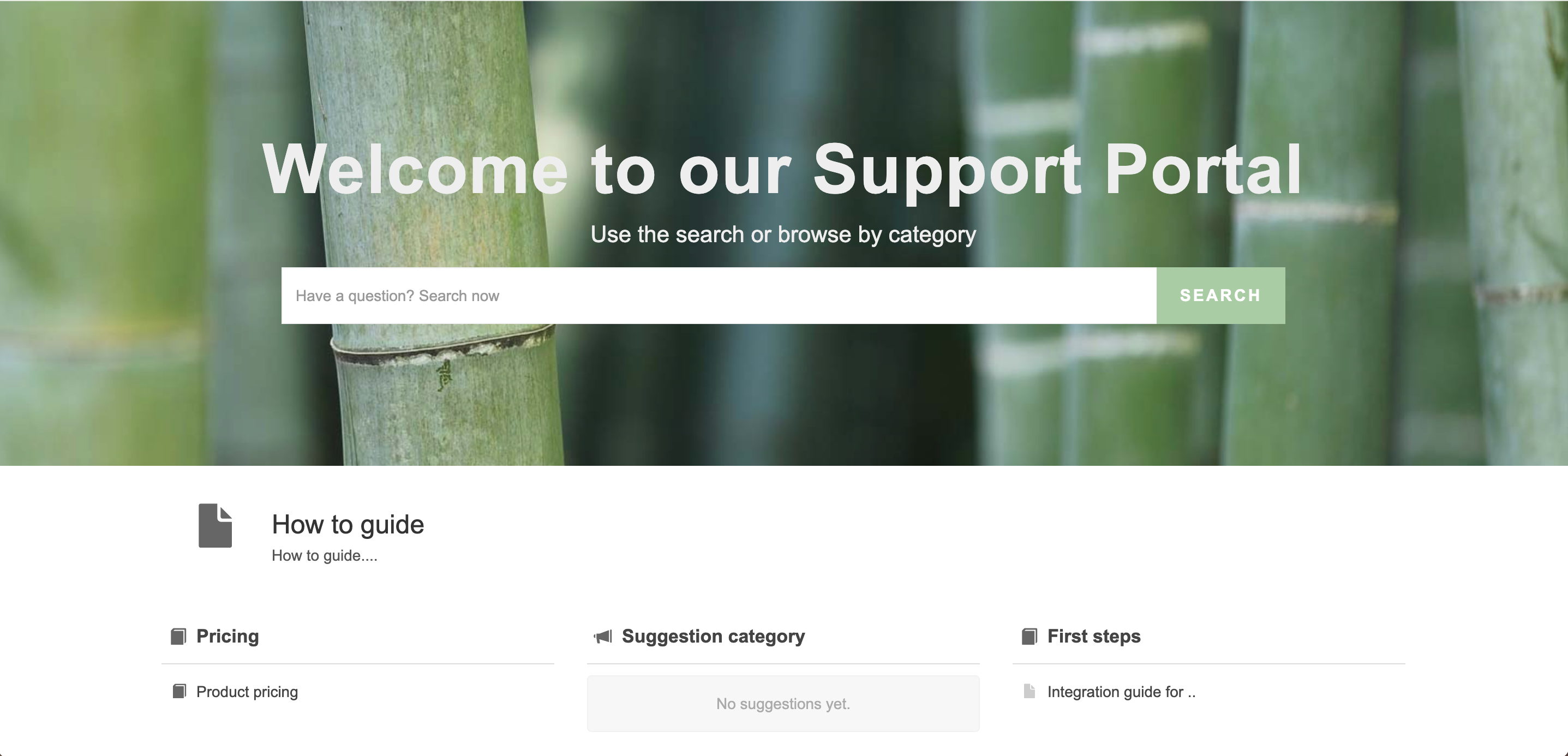
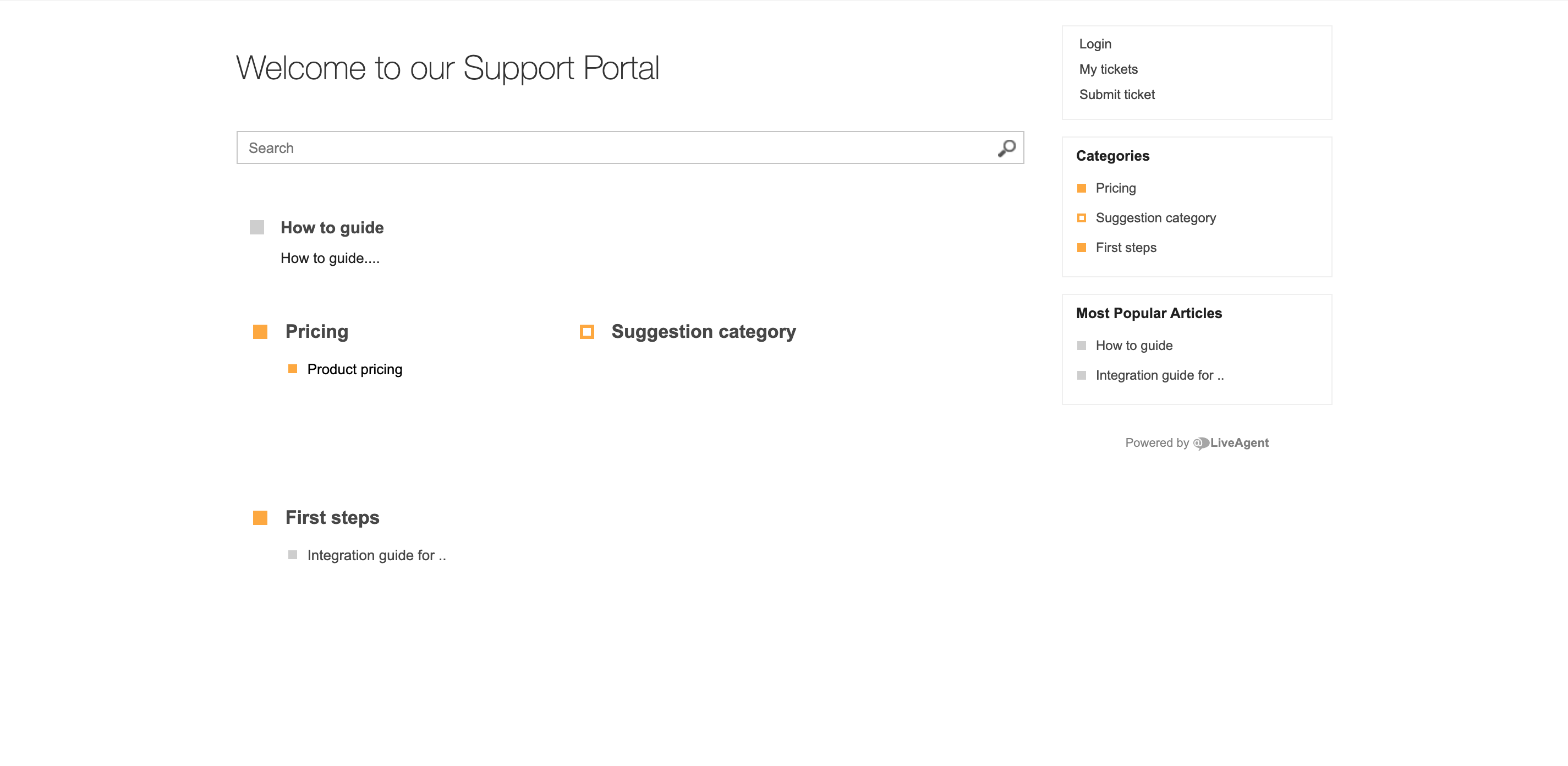
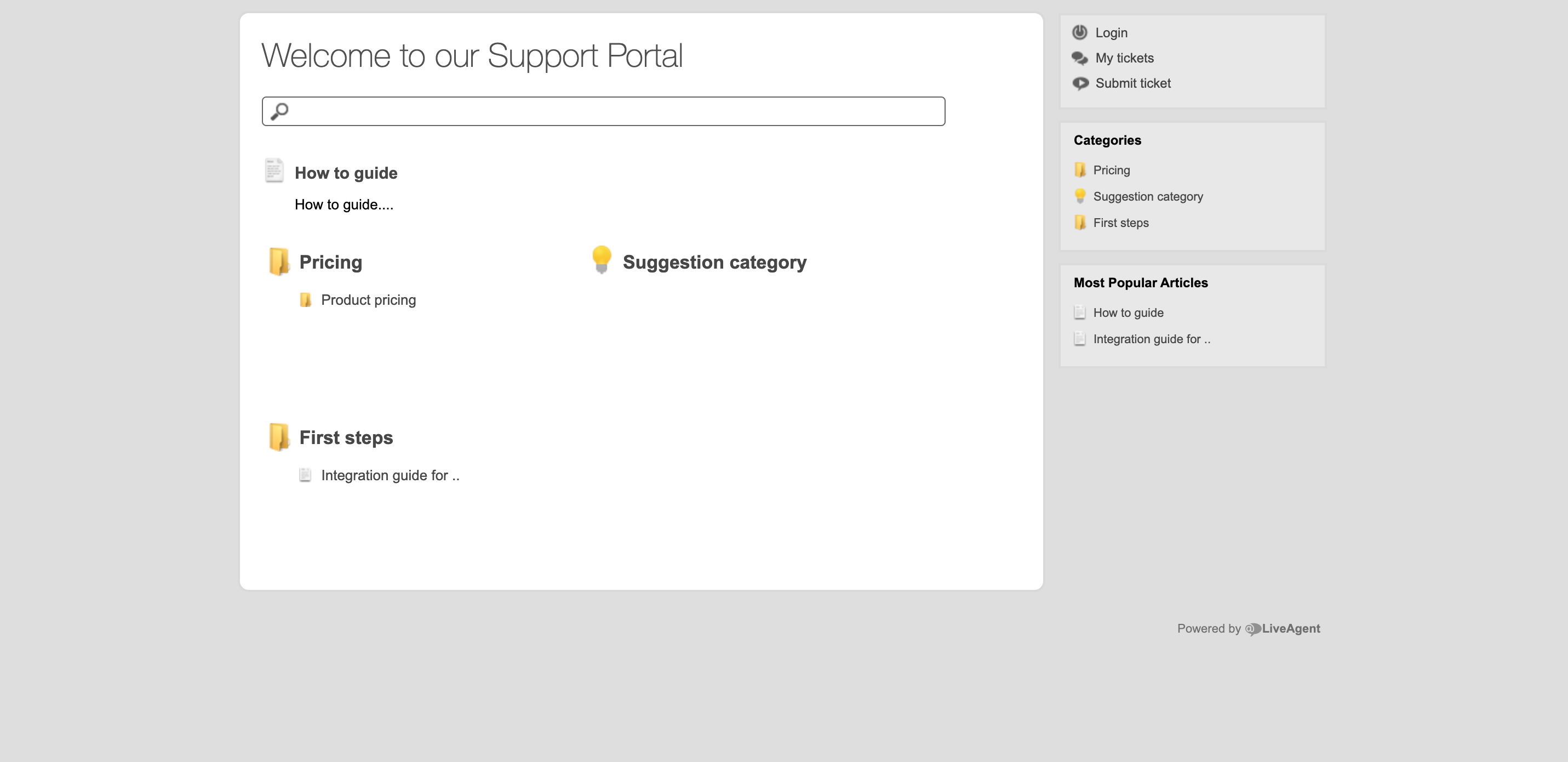

LiveAgent combines excellent live chat, ticketing and automation that allow us to provide exceptional support to our customers.
Peter Komornik, CEO
Fair and free knowledge base software
LiveAgent’s free plan is an excellent solution for start ups. However, paid plans offer various help desk features that ease up your workflow and provide you with more options for providing customer support.
Free account
Free
7-day customer support ticket history
Limited integrations
No social accounts
Missing features
Paid account
from $15/mo
No limitations
Plenty of useful features
Social media accounts
Full message history
and much more…
Free customer support
Did you know that most customers like to search for solutions independently before contacting customer support? By building your knowledge base, you can provide them with valuable information and save your customer support team time that they would spend on dealing with repetitive inquiries. With free knowledge base software, they can focus on critical issues instead.
Internal knowledge base
LiveAgent’s open-source knowledge base software allows your company to create knowledge base content for your agents and customers. The internal knowledge management tool can be a single source that stores company information.
LiveAgent’s online knowledge base software has a search engine code that easily enables your agents to look for the needed information through a search box. Overall, a private knowledge base improves employee workflow, which makes both agents and customers happy.
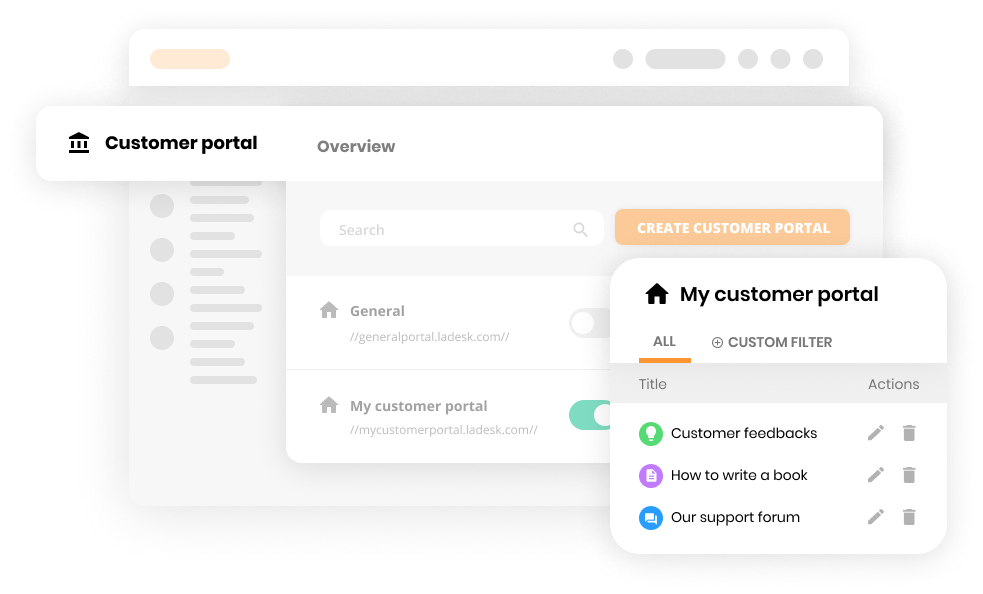
Practical WYSIWYG editor
Bringing knowledge to your customers is simple! Create specific categories and make your knowledge base easy to navigate. Afterward, you’ll fill the categories with helpful content using the built-in WYSIWYG rich text editor for articles. You can customize and style your content with headings, different colors, styles, and also pictures.
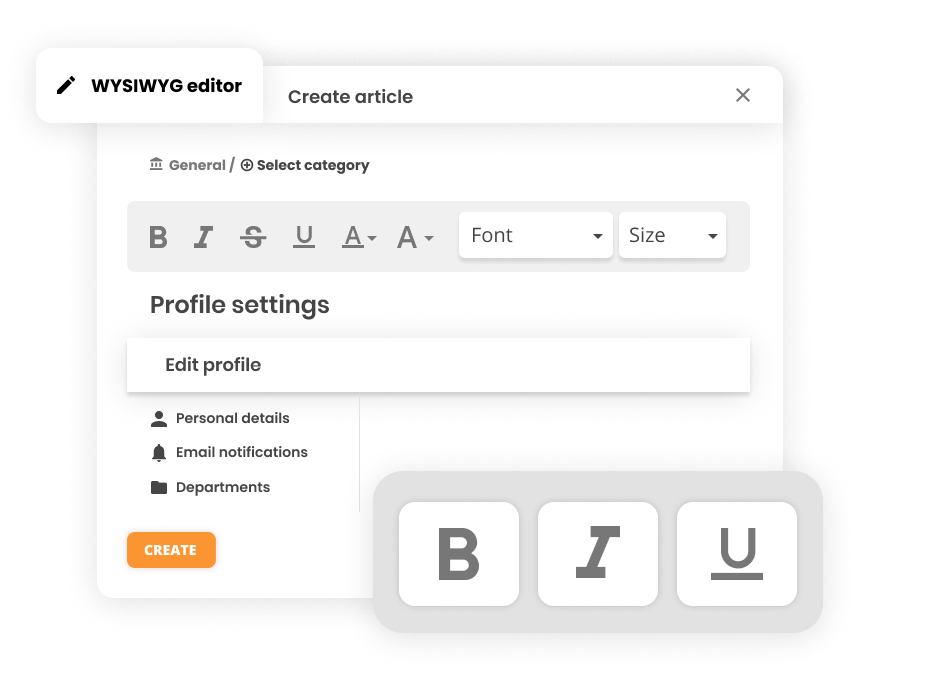
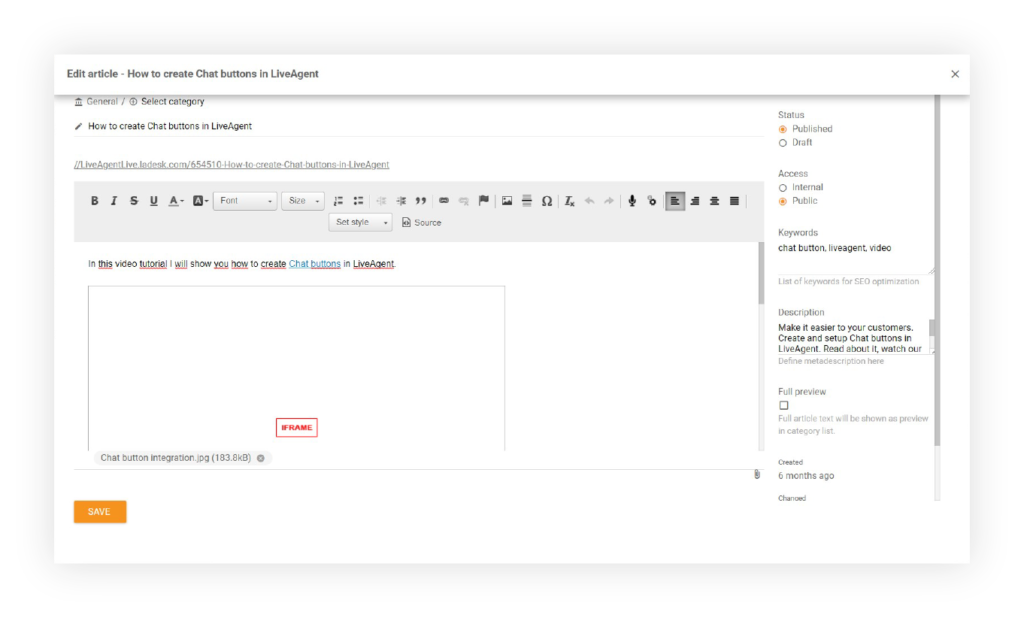
Add file attachments to articles
LiveAgent’s knowledge base solution is a powerful tool that also allows you to attach files to articles. This self-service option reduces unnecessary customer inquiries and improves overall customer communication since customers can access information independently.
Why knowledge base software?
70% of customers would rather look up the answers to their questions themselves before they would contact customer service. LiveAgent enables you to set up a knowledge base easily with just a few clicks. You can create categories, articles and adapt them to your company’s design without typing in a single line of code.
Business benefits
Provide offline help
Reliable customer service and care
Internal knowledge within the company
Customer benefits
Available 24/7/365
Customers can get answers on their own
Fastest customer support
The ultimate guide for free knowledge base software: Features & benefits
Knowledge base software empowers organizations to centralize their knowledge, making it easier for teams and clients to find answers quickly. With the right tools, companies can enhance their operational efficiency and improve customer experiences.
Amidst various software options available for free in 2025, one stands out for its comprehensive features and user-friendly interface: LiveAgent. This all-in-one customer service solution not only provides a robust knowledge base feature but also helps businesses train their teams effectively, making it a strategic choice for those looking to streamline customer support and internal processes.
In this article, we will explore the best free knowledge base software available today, highlight their essential features, and delve into the numerous benefits of using such platforms.
- What is free knowledge base software?
- Essential features of free knowledge base software
- Popular free knowledge base software platforms
- Benefits of using free knowledge base software
- Factors to consider when selecting knowledge base software
- Trials and pricing options for knowledge base software
- Free trials vs. free versions
- Pricing structures of major platforms
What is free knowledge base software?
Free knowledge base software is a tool that acts as a DIY help center, enabling employees and customers to quickly find answers to their questions independently. It establishes an internal knowledge base that serves as a centralized repository for databases, documents, procedures, files, and business policies. This centralized library streamlines business operations and enhances team collaboration.
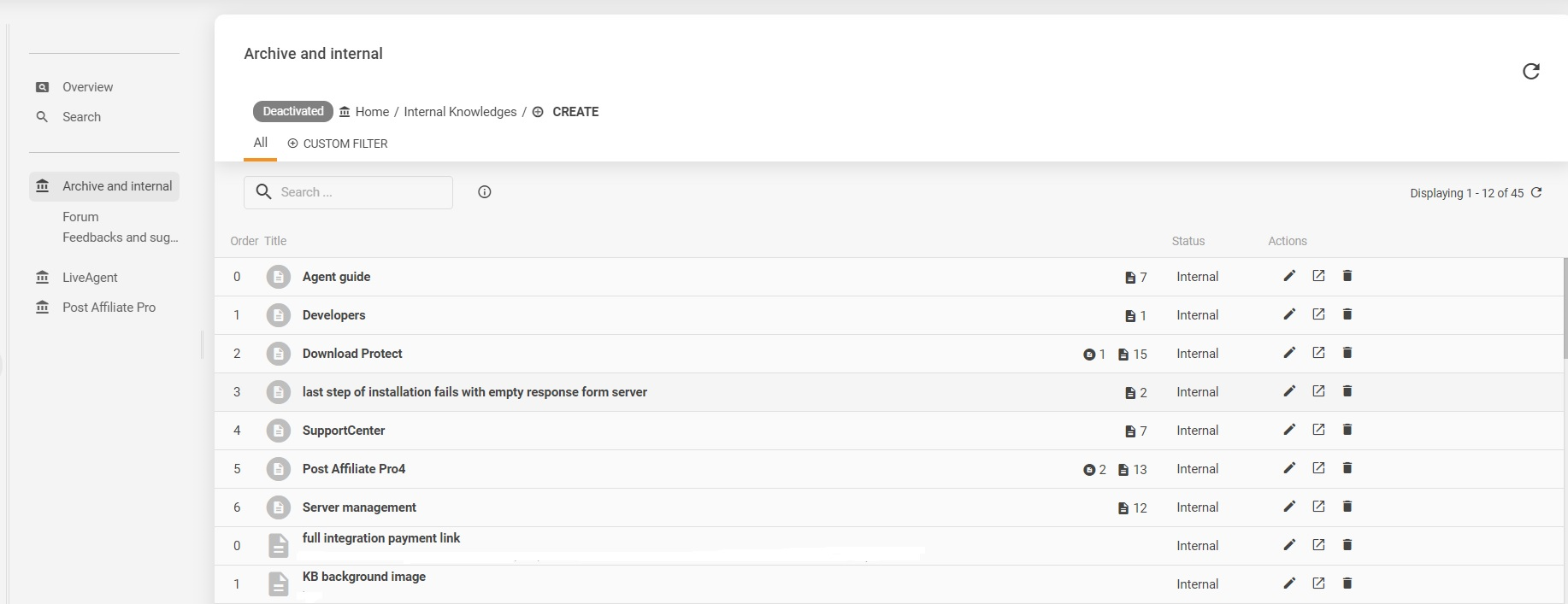
For customers, an external knowledge base provides accessible resources to effortlessly acquire information about products or services. This empowers users to troubleshoot issues on their own, enhancing the overall customer experience and satisfaction.
By promoting self-service, businesses alleviate the workload on their support teams, allowing them to concentrate on more complex or urgent matters.
Incorporating a free knowledge base solution can significantly reduce costs associated with direct support interactions. It is a practical tool for modern businesses aiming to facilitate efficient knowledge management and customer self-service.
Essential features of free knowledge base software
Free knowledge base software offers a centralized system for storing and accessing important information, significantly streamlining operations and enhancing both internal team collaboration and customer self-service. By incorporating essential features, such software becomes a robust asset for any business.
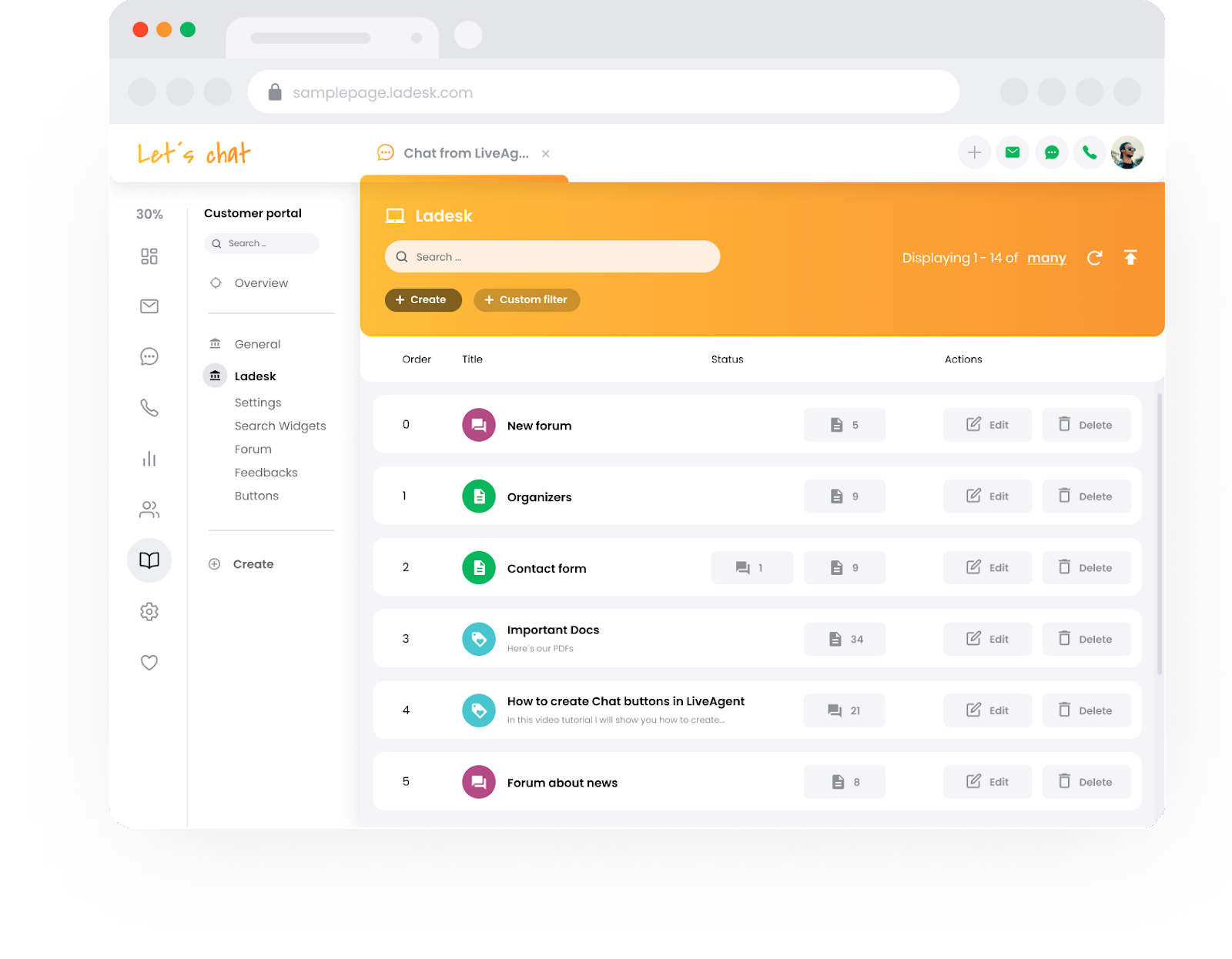
Content management and revision history
An effective knowledge base software should include a built-in content and revision history feature. This allows users to swiftly access and restore previous versions of articles, enhancing the flexibility and control of content management. Features like version control offer granular tracking of changes, promoting transparency and accountability by preserving the integrity of the information.
Custom organization capabilities
Custom organization features empower users to manage and structure their knowledge base efficiently. These features enable the creation of customized templates, categories, and navigation options, which improve the user experience by making the system intuitive and user-friendly. Tailoring the content to fit specific departmental or project needs ensures users can find relevant information quickly.

Help Center Search Engine Functionality
A powerful and intuitive search engine is crucial in a knowledge base, allowing users to swiftly locate pertinent information even if there are typos or language barriers. Optimizing for search engines (SEO) ensures the knowledge base ranks high in search results, making it readily accessible to customers looking for assistance. Proper indexing and strategic keywords further enhance search accuracy.

Analytics and reporting tools
Analytics and reporting features provide insights into user engagement and content performance. By tracking metrics like page views, search terms, and unresolved queries, organizations can identify content gaps and areas needing improvement. These insights enable businesses to optimize their knowledge base, enhancing content value and user engagement.
Templates for structured content
Templates play a crucial role in establishing a consistent and structured knowledge base. Pre-built and customizable templates allow for uniformity across articles, promoting a cohesive look and feel.
This consistency enhances the user experience by providing a reliable framework for content creation, catering to varying levels of technical expertise while aligning with brand identity.
User feedback and engagement features
Integrating feedback and engagement tools into knowledge base software is essential for continuous improvement. Users can gain valuable insights from metrics such as article popularity, time spent on pages, and feedback ratings. Monitoring unresolved searches and engaging with user feedback helps identify gaps in content, ensuring the knowledge base meets user expectations effectively.
By understanding and implementing these features, businesses can maximize the benefits of free knowledge base software, enhancing both their customer service capabilities and internal knowledge management processes.
Among the options available, LiveAgent stands out for its comprehensive approach, offering both customer service tools and robust knowledge base functionalities.
Popular free knowledge base software platforms
By enabling customers to find answers themselves, these platforms reduce the volume of inquiries to customer service reps, thus enhancing productivity. Additionally, providing easy access to verified information can lead to improved customer retention and loyalty. While they offer numerous benefits, free solutions sometimes have limitations in scalability and ROI compared to paid options.
LiveAgent
LiveAgent stands out as a leading customer support platform that simplifies the creation and management of knowledge bases. It integrates seamlessly with help desk solutions, transforming support tickets into knowledge articles.
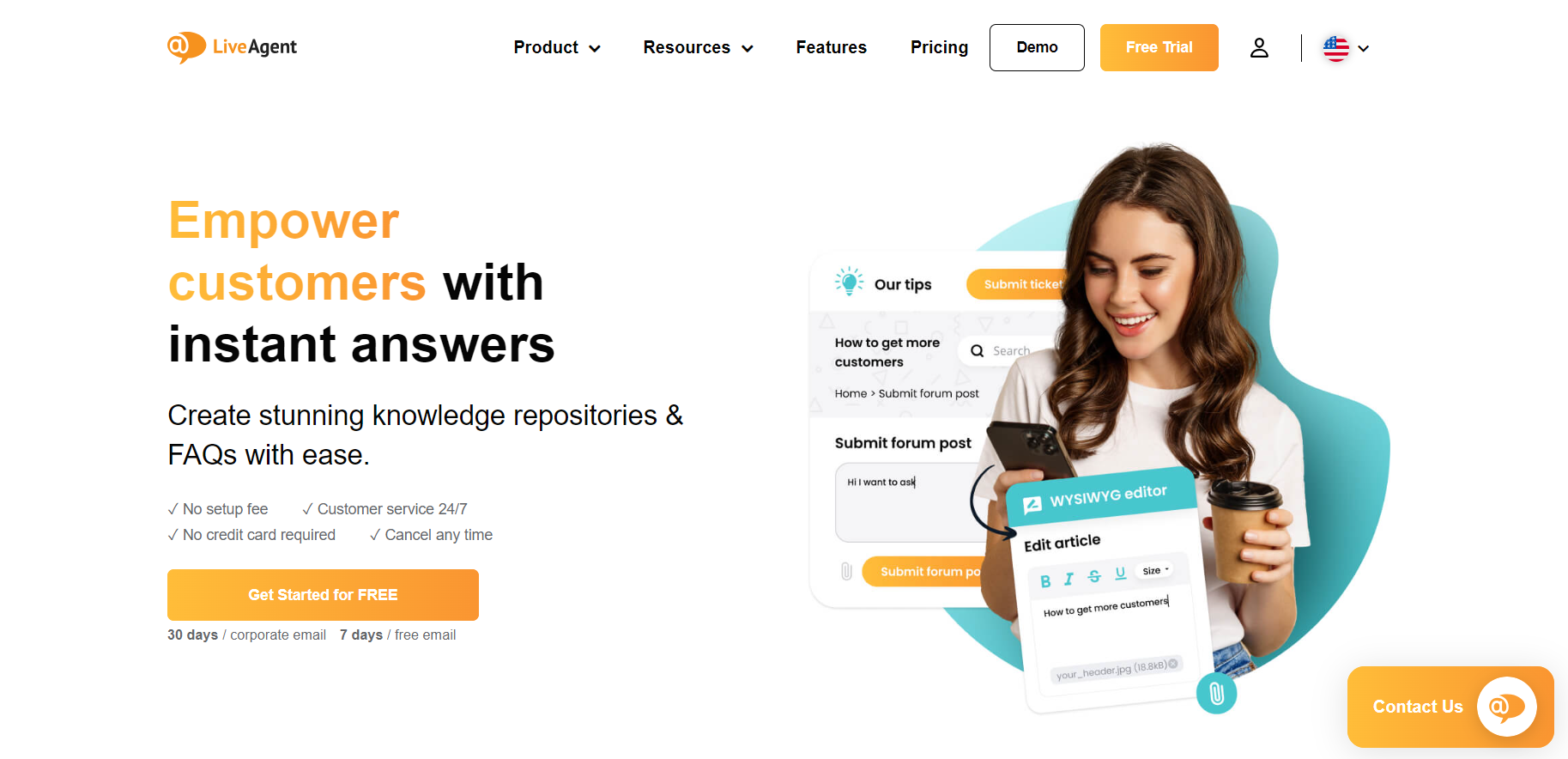
Its categorization and search features ensure users can quickly find the information they need. LiveAgent also boosts agent productivity with insights into content performance, enabling dynamic enhancements based on feedback. Furthermore, its customizable self-service portal supports brand alignment, offering a tailored experience for users.
Documize Community
Documize Community is an open-source solution adept at handling both internal and external documentation. It organizes documents using labels and categories rather than traditional folders, facilitating efficient content management. The platform includes features for archiving, version control, and analytics to ensure content quality.
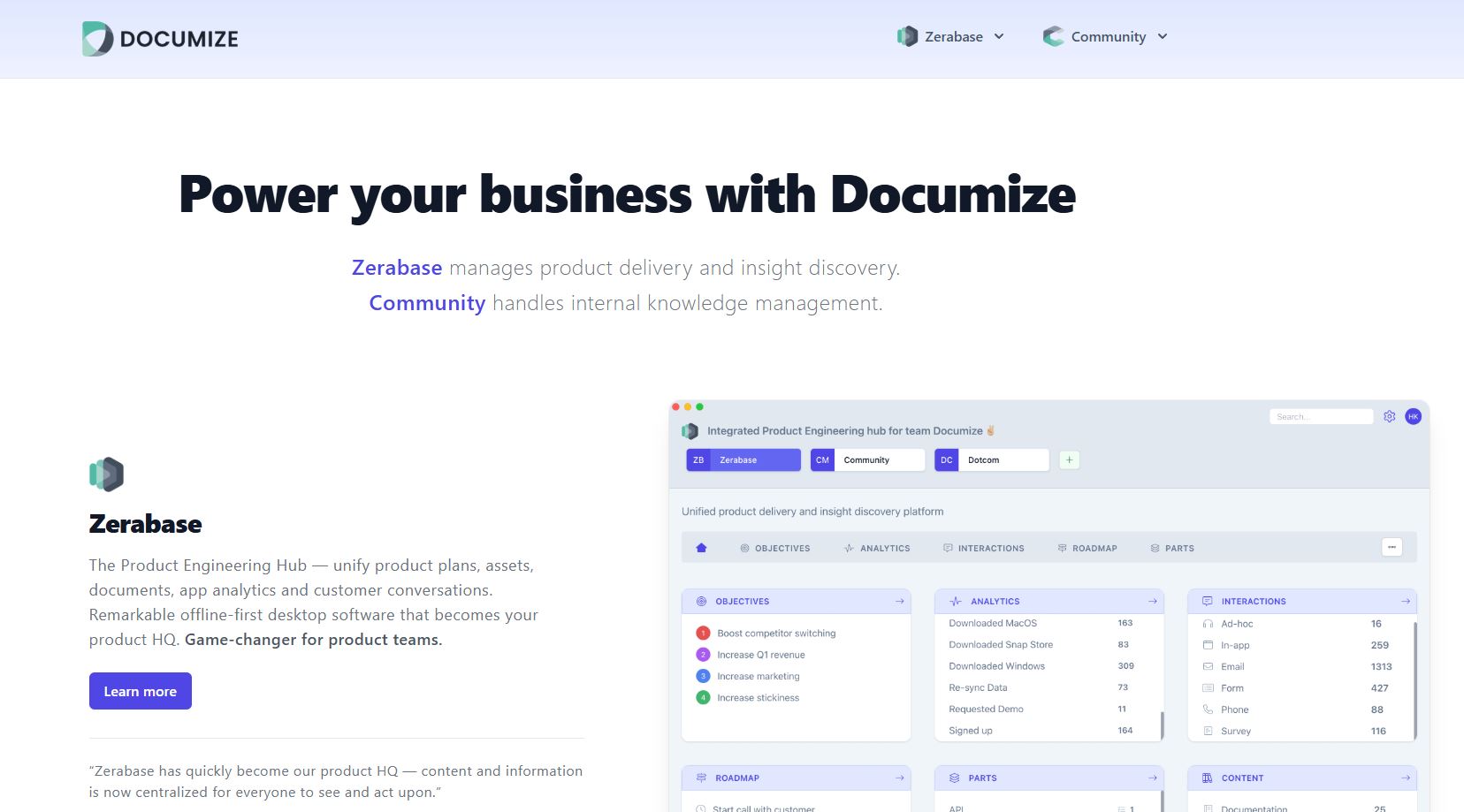
Additionally, its flexible deployment options—self-hosted, cloud-based, or hybrid—cater to diverse business needs, providing significant adaptability.
Document360
Document360 offers a sophisticated cloud-based environment for creating and managing knowledge bases. Its rich editor and real-time search feature streamline content development.
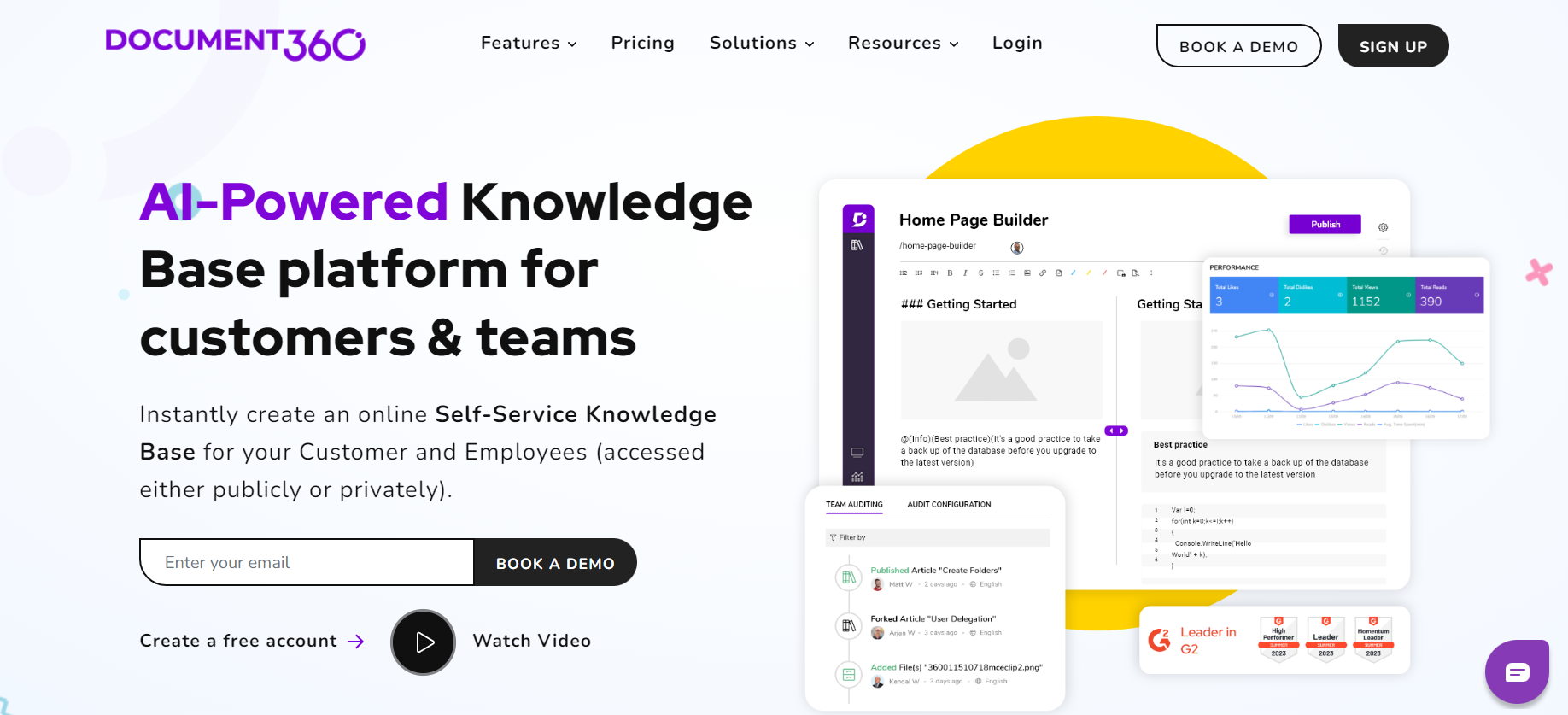
Document360 enhances visibility with built-in SEO features and facilitates information access through advanced search. The software also includes automated onboarding, Microsoft Teams integration, and knowledge alerts for timely updates. Content organization is simplified with drag-and-drop functionality, supporting deep content grouping.
Confluence
Confluence by Atlassian promotes company-wide information sharing with its free knowledge base capabilities, offering up to 2GB of storage. It allows for the creation of unlimited content spaces to maintain knowledge organization. Users can track page history and revert changes if necessary.
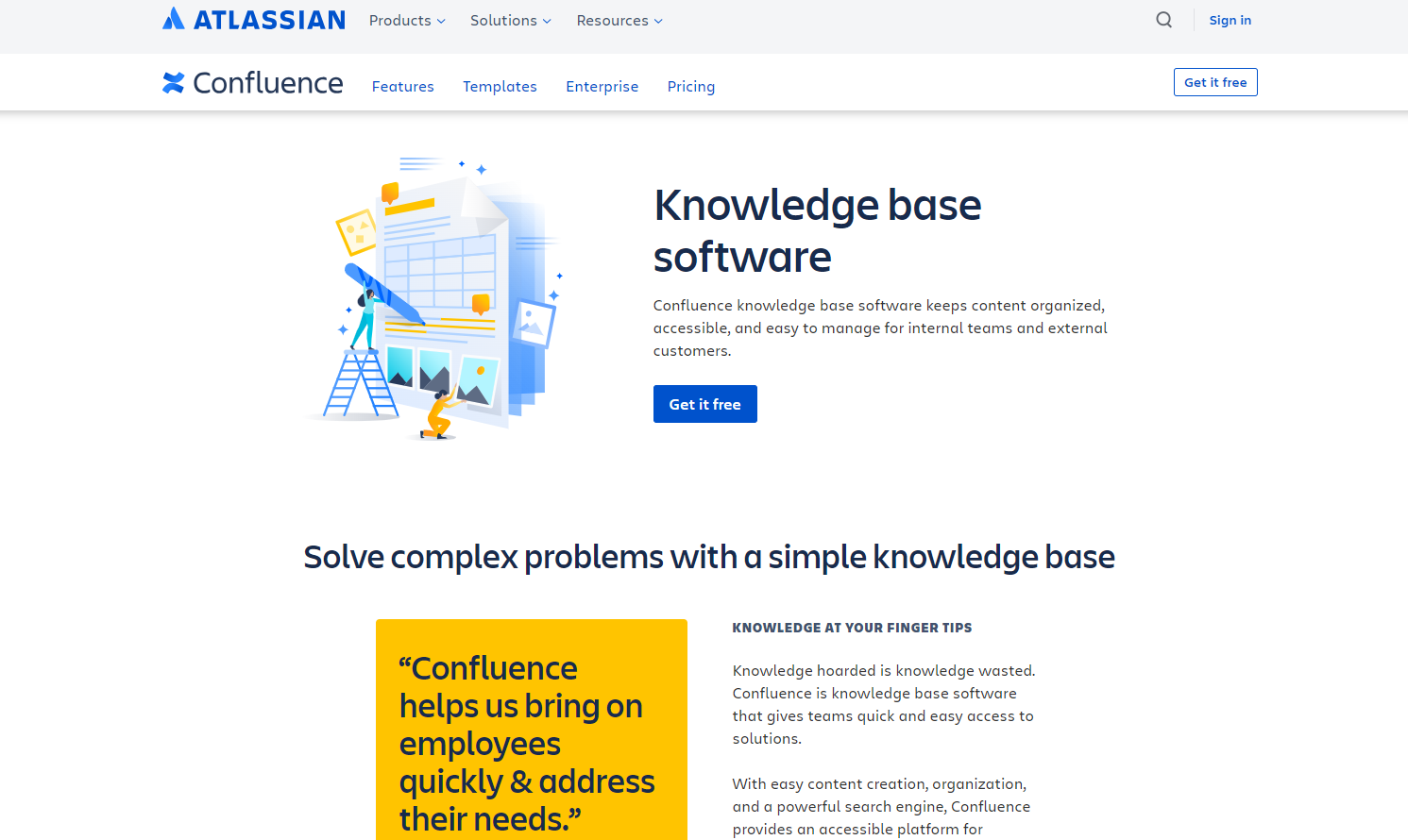
Confluence’s templates foster best practices, ensuring high-quality and consistent documentation. While the base version is free, pricing for the Standard plan starts at $580 per year, increasing with more users.
Benefits of using free knowledge base software
Tools like these promote efficiency by reducing the necessity for direct contact with support teams. Many businesses prefer open-source knowledge base software since it is free and allows for custom solutions without significant costs. This feature not only supports self-service but also serves as a training platform for business teams.
Enhancing customer retention
Self-service knowledge bases are vital for increasing customer retention. They empower customers to quickly find solutions, fostering a positive support experience. When companies provide readily available resources, they anticipate customer needs, leading to higher satisfaction and a stronger possibility of retaining those customers. By offering an efficient support system, businesses build loyalty and encourage long-term customer relationships.
Reducing service traffic
A well-structured knowledge base significantly reduces the volume of service traffic by empowering customers with self-service options. With easily accessible documents and step-by-step guides, customers resolve their issues independently, freeing up support agents to handle more complex requests.
This reduction in service tickets results in lower response times and generally improves customer satisfaction, influencing purchasing decisions positively.
Fostering team collaboration and training
Implementing knowledge management software enhances team collaboration and smoothens the training process. By providing a centralized repository of information, it ensures that all departments have access to the latest company data.
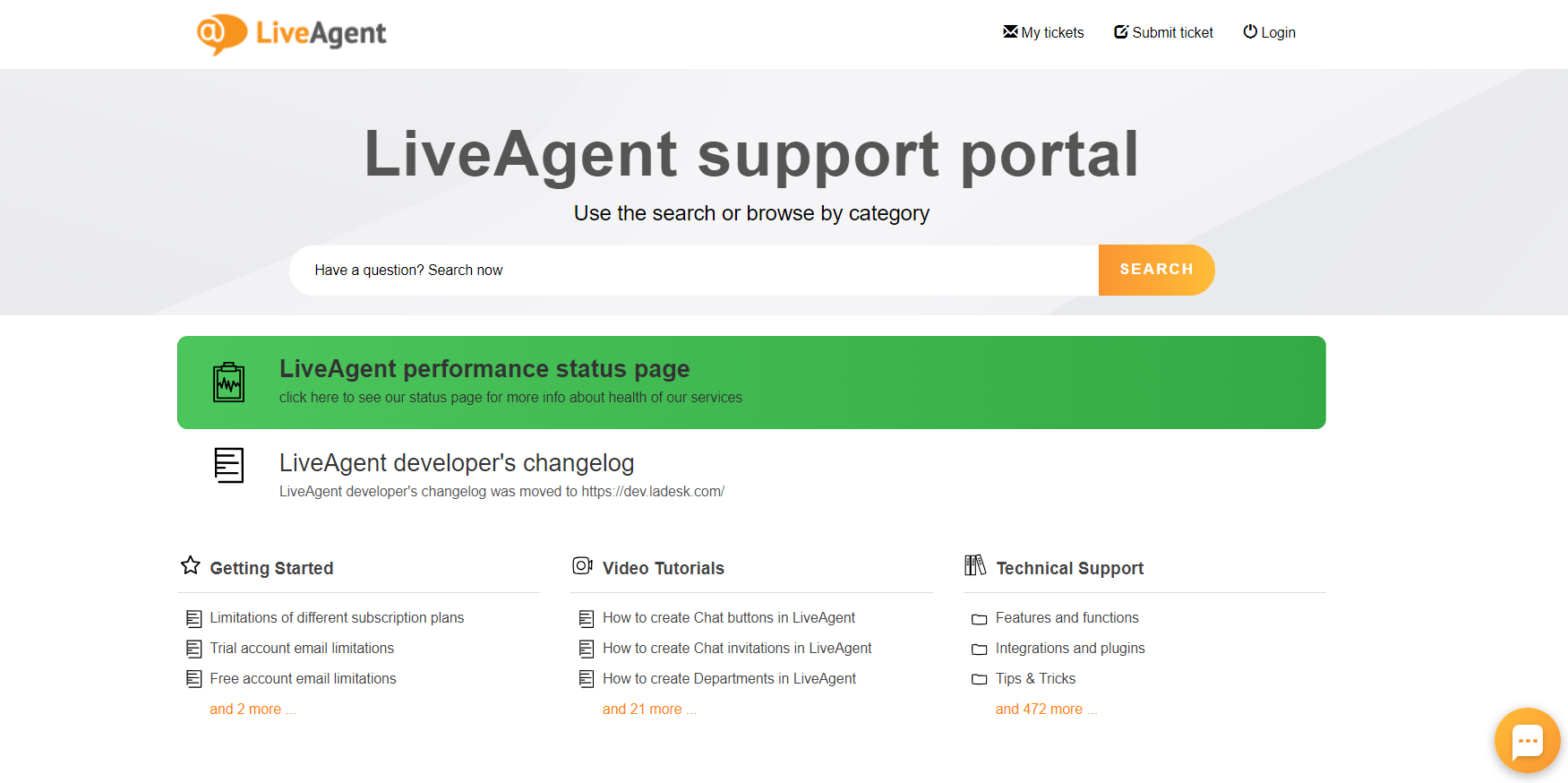
This facilitates efficient onboarding, helps new employees tackle challenges more independently, and accelerates their journey to productivity. The ability to access previous versions of documents ensures effective collaboration by preserving valuable insights and practices.
Factors to consider when selecting knowledge base software
When choosing knowledge base software, it’s essential to decide whether your organization requires an internal, external, or a combination of both types. Different providers may specialize in one type, so analyzing your needs will guide your selection. Identify must-have features early in the decision-making process, as free software might have limitations that do not cover all your requirements.
It’s important to research different providers and compare plans to ensure alignment with your organizational goals. Strong search capabilities are vital to enhance the user experience by allowing users to retrieve information easily. Open-source software’s flexibility to modify and integrate can be crucial in meeting specific organizational needs.
User-friendliness
User-friendly knowledge base software empowers users to organize and personalize content according to search patterns. Features like customizable hierarchies and drag-and-drop functionality streamline navigation. MediaWiki, for instance, offers an intuitive interface with simple syntax, enabling non-technical users to create and edit content effortlessly.
A modern platform allows for public and private access to content, enhancing both customer and employee user experiences by maintaining control over content visibility.
Scalability and integration
Scalability is key in knowledge base software, ensuring it supports business growth without loss of efficiency. Solutions like LiveAgent offer scalable cloud-based platforms suitable for businesses of all sizes.
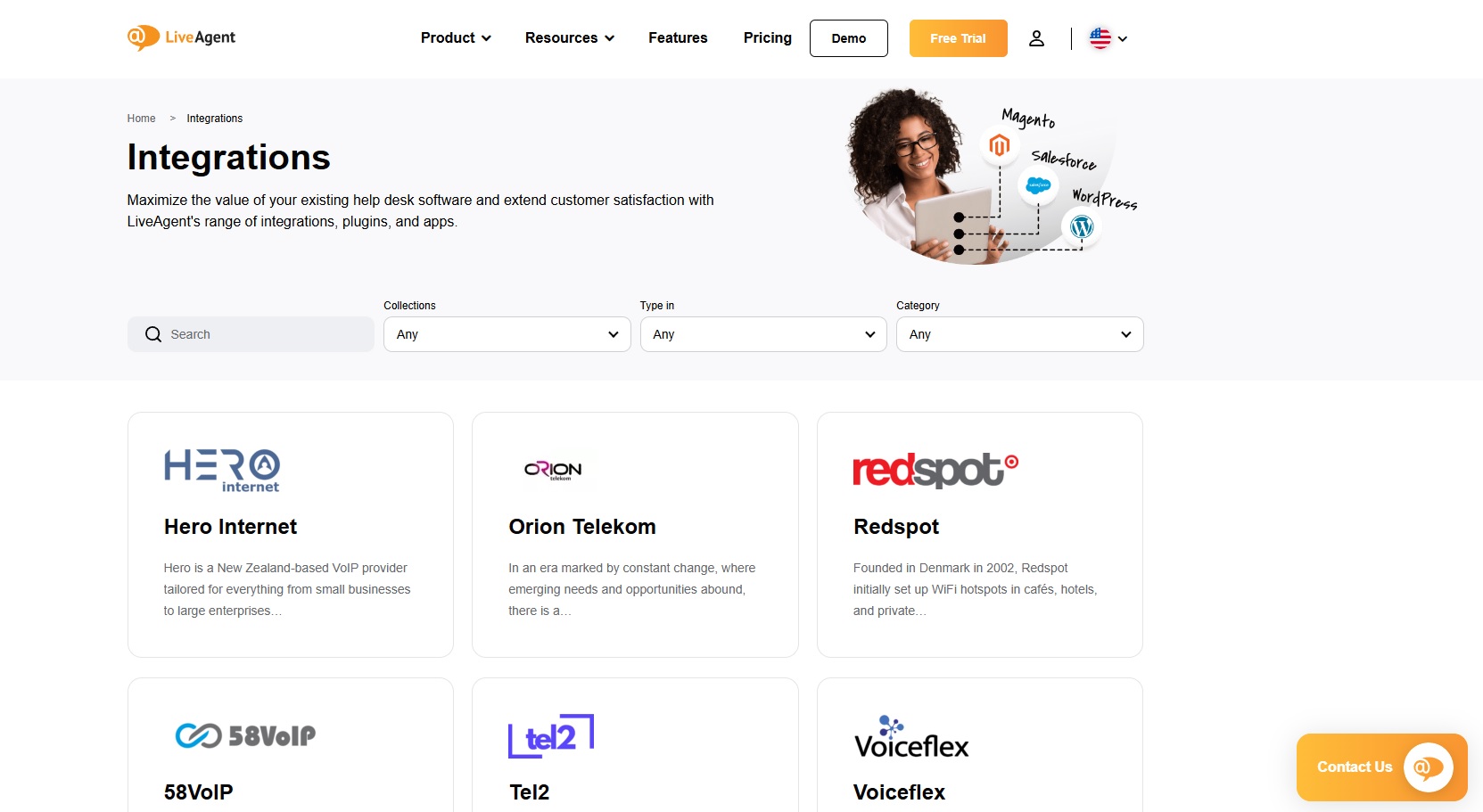
Custom templates in knowledge bases allow users to tailor the system for their unique branding and content requirements, supporting scalable growth in content management. Integration with other systems enhances user experience and operational efficiency during expansion.
Customer support options
Knowledge base platforms should offer public and private access, enabling businesses to customize resources for customer self-service or internal use. Integrating with tools like live chat or help desks can enhance customer support by delivering immediate assistance.
Features such as categorization, search functionalities, and AI suggestions facilitate easy location of relevant articles and information, improving user satisfaction and loyalty. Self-service capabilities help improve customer retention by empowering users to find solutions independently, reducing the burden on support teams.
Trials and pricing options for knowledge base software
Offering free trials, like LiveAgent’s 30-day trial, allows businesses to explore various knowledge base solutions without any initial costs. These trials help determine how well the software integrates with existing systems and fits organizational needs. Opting for free or trial-based solutions can empower both staff and customers, providing easy access to information and ultimately boosting productivity.
Free trials vs. free versions
Many Software as a Service (SaaS) solutions provide free trials to showcase their features. However, truly free knowledge base software options are limited and often come with restrictions. While some programs market themselves as “free,” they are usually add-ons to paid services.
When evaluating a free option, consider scalability, ease of use, and the ability to accommodate your team’s skill level. Free trials of various knowledge base tools remain an effective way to assess their potential before making a financial commitment.
Pricing structures of major platforms
Knowledge base software platforms often offer tiered pricing structures. For instance, LiveAgent starts at $99 per month for two users, gradually increasing with more users. This model suits small but growing companies.
On the other hand, LiveAgent offers a Basic Plan at $15 per user monthly, with more advanced plans requiring quotes. Similarly, Guru’s Builder plan is priced at $10 per user per month, billed annually, and requires direct contact for Enterprise pricing. Some programs like PHPKB offer flexibility with self-hosted or SaaS options, accommodating user preferences and business needs.
Provide excellent customer service.
Discover unparalleled customer support with LiveAgent's all-in-one software. Benefit from 24/7 service, a free trial without a credit card, and seamless integration across 130+ ticketing features. Enhance your business with fast setup, AI assistance, live chat, and more. Choose LiveAgent for exceptional service and satisfied customers.
Discover how LiveAgent's Tag Reports enhance your customer support by categorizing tickets, creating custom workflows, and generating insightful reports. Boost your service quality with features like call tagging and agent reports. Explore the possibilities with a free trial or schedule a demo today!
You will be
in Good Hands!
Join our community of happy clients and provide excellent customer support with LiveAgent.

Our website uses cookies. By continuing we assume your permission to deploy cookies as detailed in our privacy and cookies policy.
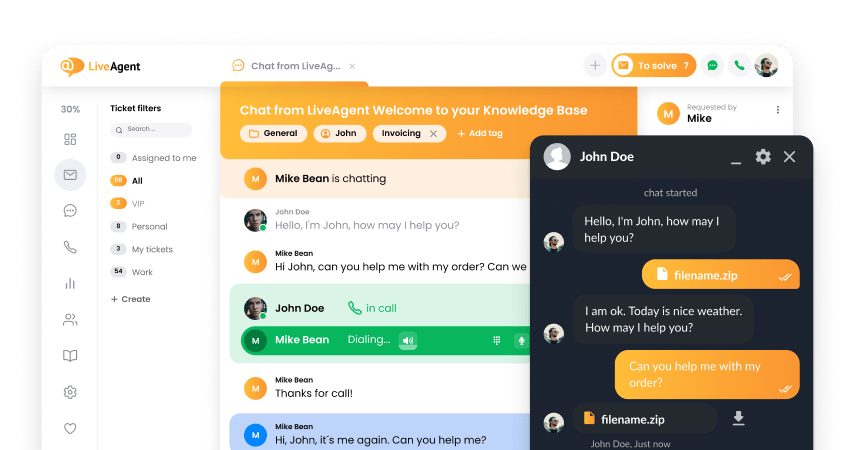
- How to achieve your business goals with LiveAgent
- Tour of the LiveAgent so you can get an idea of how it works
- Answers to any questions you may have about LiveAgent

 Български
Български  Čeština
Čeština  Dansk
Dansk  Deutsch
Deutsch  Eesti
Eesti  Español
Español  Français
Français  Ελληνικα
Ελληνικα  Hrvatski
Hrvatski  Italiano
Italiano  Latviešu
Latviešu  Lietuviškai
Lietuviškai  Magyar
Magyar  Nederlands
Nederlands  Norsk bokmål
Norsk bokmål  Polski
Polski  Română
Română  Русский
Русский  Slovenčina
Slovenčina  Slovenščina
Slovenščina  简体中文
简体中文  Tagalog
Tagalog  Tiếng Việt
Tiếng Việt  العربية
العربية  Português
Português 
